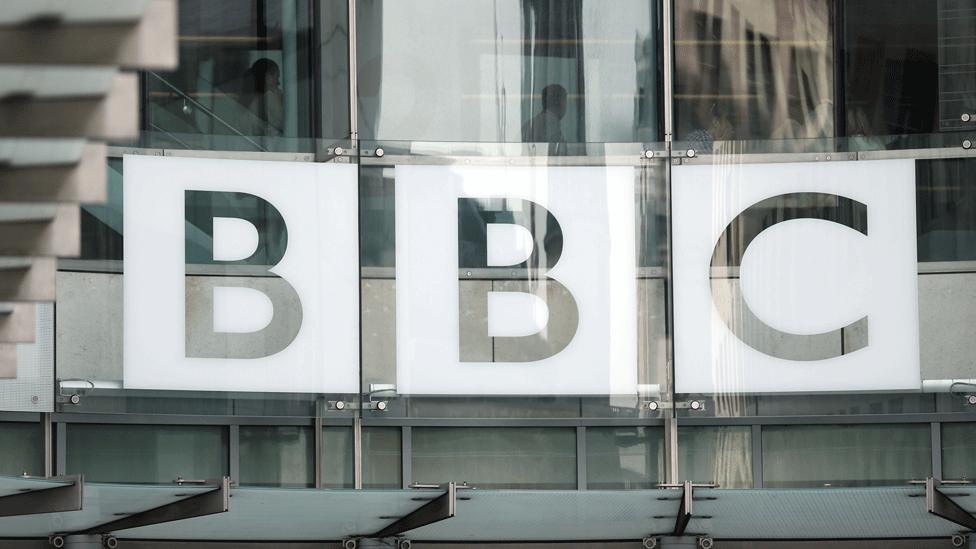An enhanced BBC Scotland in a renewed BBC?
- Published
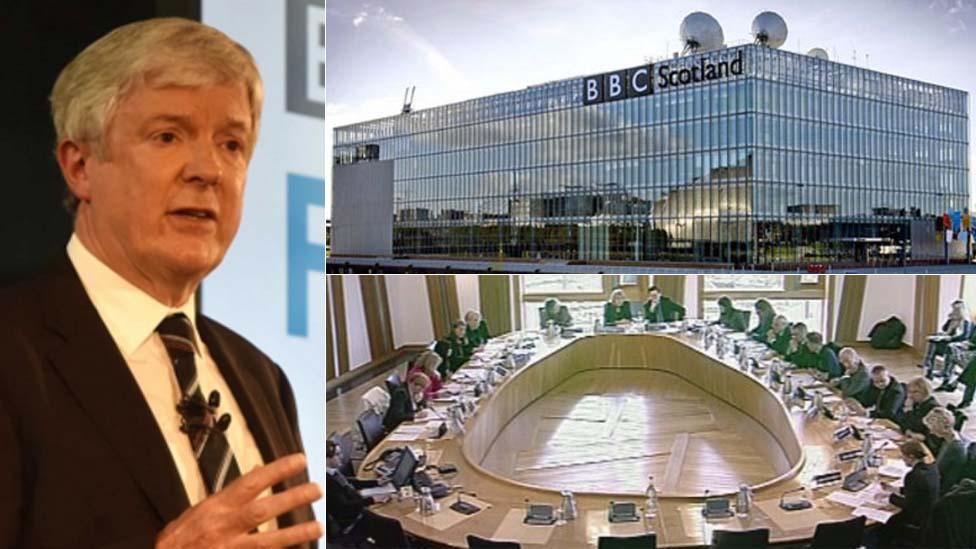
Tony Hall, director general of the BBC, appeared before a committee of MSPs
In all, the latest Holyrood hearing about the future of the BBC lasted nearly three hours. Around half the full duration of the new serial, War and Peace, on BBC One. But with roughly the same degree of complexity.
However, intriguingly, there was rather more peace in the Holyrood committee room than one might have anticipated.
The advance billing was primarily of conflict. The BBC, it was said, was failing to serve Scotland. Not enough output made it to the network. Licence fee payers north of the Border got a raw deal. Plus continuing disquiet, emanating from the SNP in particular, about news coverage.
To be clear, there was exceptionally close questioning directed at the BBC bosses - the Director General Tony Hall, the Managing Director for Finance Anne Bulford, and the Director Scotland Ken MacQuarrie.
In that regard, the committee convener Stewart Maxwell was to the fore - but was ably supported by members such as Chic Brodie, Mary Scanlon and Liam McArthur.
The BBC in Scotland
What is raised and what is spent?
£323m
Licence fee generated in Scotland
-
£123m - Scottish-only output spend
-
£82m - Scottish-made network output
-
£132.5m - UK programmes and services available to Scotland
In particular, the SNP's Gordon MacDonald - a former management accountant - plainly relished a return to his old profession, pursuing his financial inquiries with thoroughly admirable diligence, reminiscent of an indefatigable terrier.
George Adam even contrived to work in a reference to his beloved Paisley. Steven Moffat - he of Dr Who and Sherlock - is apparently a Buddy (and, who knows, a buddy.) Mr Adam followed this up with sharp questioning about money and power.
But still the overall tone was business-like rather than overtly adversarial. It seemed to me that the committee scented the prospect of a negotiated settlement which could be distinctly to Scotland's advantage. That impression has not lessened from subsequent conversations.
That tone persisted in the evidence session with the Culture Secretary Fiona Hyslop. She stressed she was not seeking a fight. She wanted a deal - which would bring investment and jobs to Scotland.
Things, she suggested, were moving in that direction.
To the detail.
in 2014/15, the BBC licence fee raised £323m in Scotland
TV, radio and other output for Scotland cost £108.2m, including relevant management and other charges
programmes for the UK network made in Scotland cost £82.3m
and that leaves £132.5m contributing to other UK programmes and services available to Scotland.
Sundry MSPs parsed these numbers. What were those top-up costs? How were they justified? Why was investment per head still greater in Wales and Northern Ireland than in Scotland?
In particular, those network programmes made in Scotland. How did they qualify to be Scottish? Were many of them not just "lift and shift" - that is, programmes envisioned elsewhere but transferred to Scotland?
The argument flowed back and forth. It was argued forcibly that programmes with a Scottish base contribute to jobs and development here.
'Scottish Six'
However, Tony Hall acknowledged that it was now time to move to a new phase: with further power in Scotland allied to programmes which offered a more sustained and authentic portrait of Scotland.
Further, the Director General confirmed a review of news, due to report in the Spring - which might include such familiar concepts as a Scottish Six, a TV programme encompassing Scottish, UK and global news.
Ken MacQuarrie was questioned about earlier ideas such as new Scottish TV and radio channels. Those, he said, had never formed part of a formal plan. They were notions around during the earliest stages of preparing for the Charter Review, itself due to be completed by the end of this year.
Tony Hall suggested the focus now - particularly in the light of the relatively constrained licence fee settlement - might more usefully be upon programmes, rather than delivery mechanisms. On governance, he said that he favoured a unitary board for the BBC with a distinctive Scottish presence.
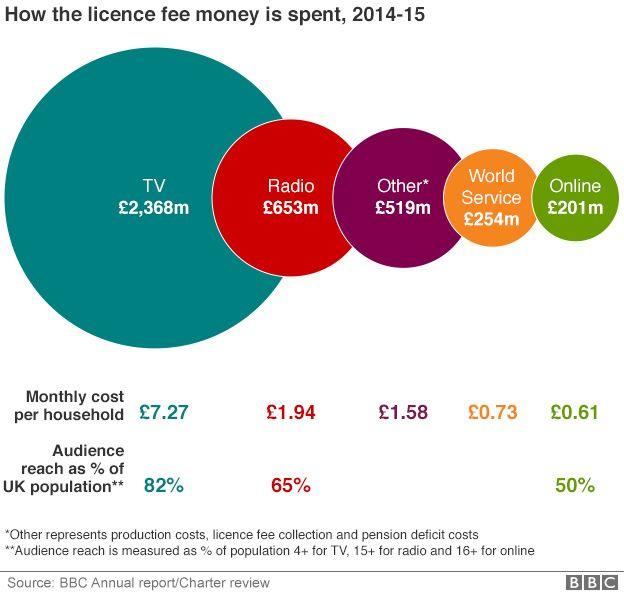
In essence, his argument was for an enhanced BBC Scotland offer within a renewed BBC.
To be clear, once more, there remains deep scepticism among the MSPs. Across parties but particularly in SNP ranks. This has by no means, by no means, been entirely assuaged.
So where now?
But they heard the BBC executives, led by Tony Hall, seeking to address their concerns, moving to acknowledge issues surrounding funding, commissioning and decision-making.
So where now? I believe those three elements - funding, commissioning and decision-making - will form the core of the committee report.
I believe further that the committee members will seek to sound a positive note, amid the scepticism, urging the BBC to act in a fashion which could generate investment and jobs for Scotland.
I believe, further, that the committee report next month - unanimous if that can be achieved - might then form the subject for a full Parliamentary debate, applying pressure to the BBC to deliver.
- Published12 January 2016
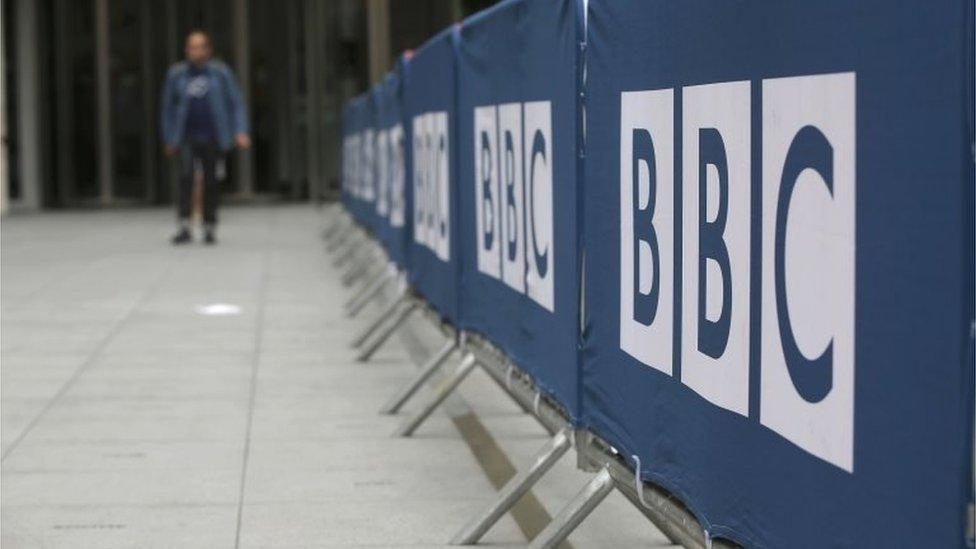
- Published11 January 2016
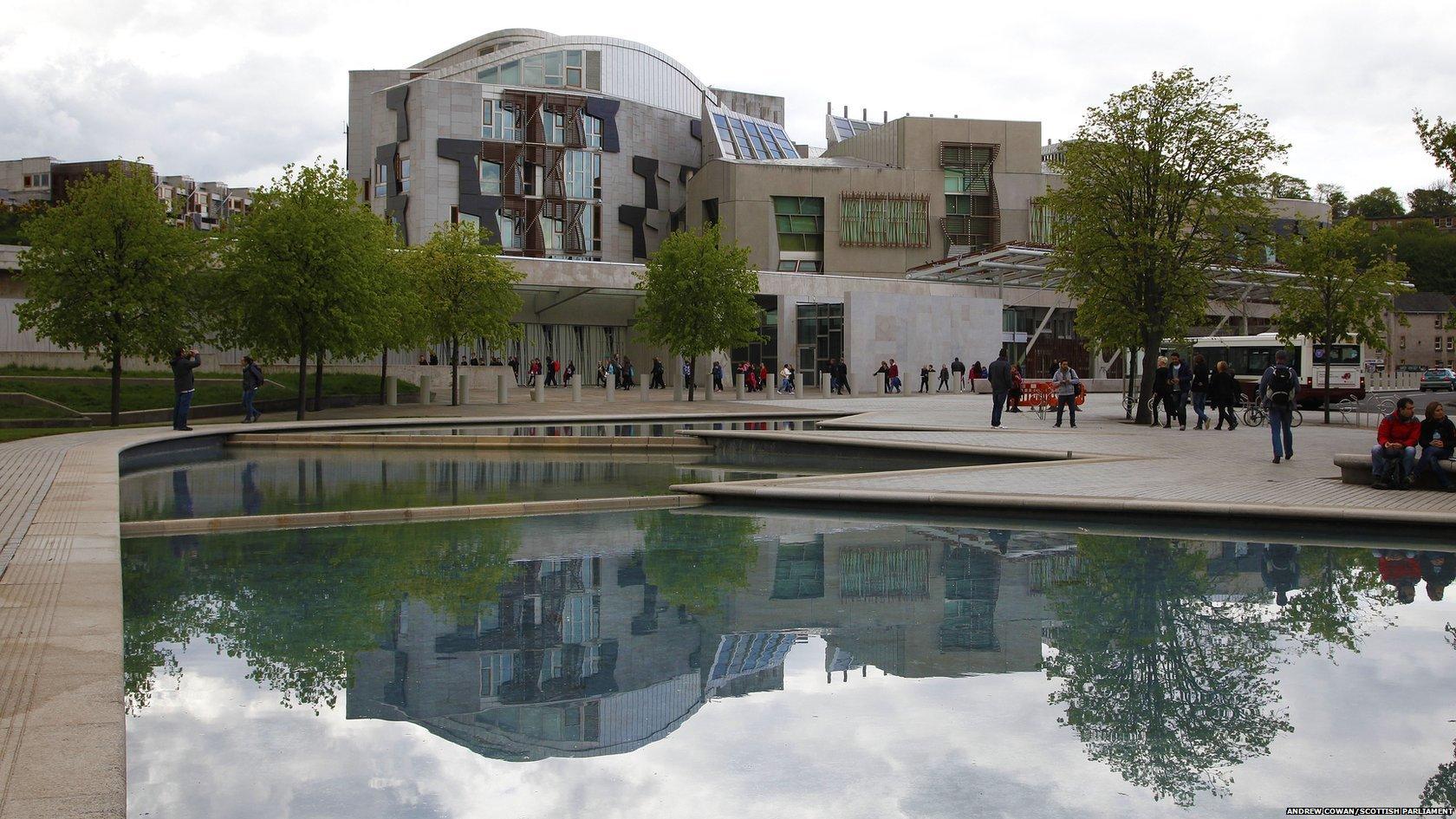
- Published12 January 2016
